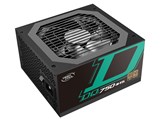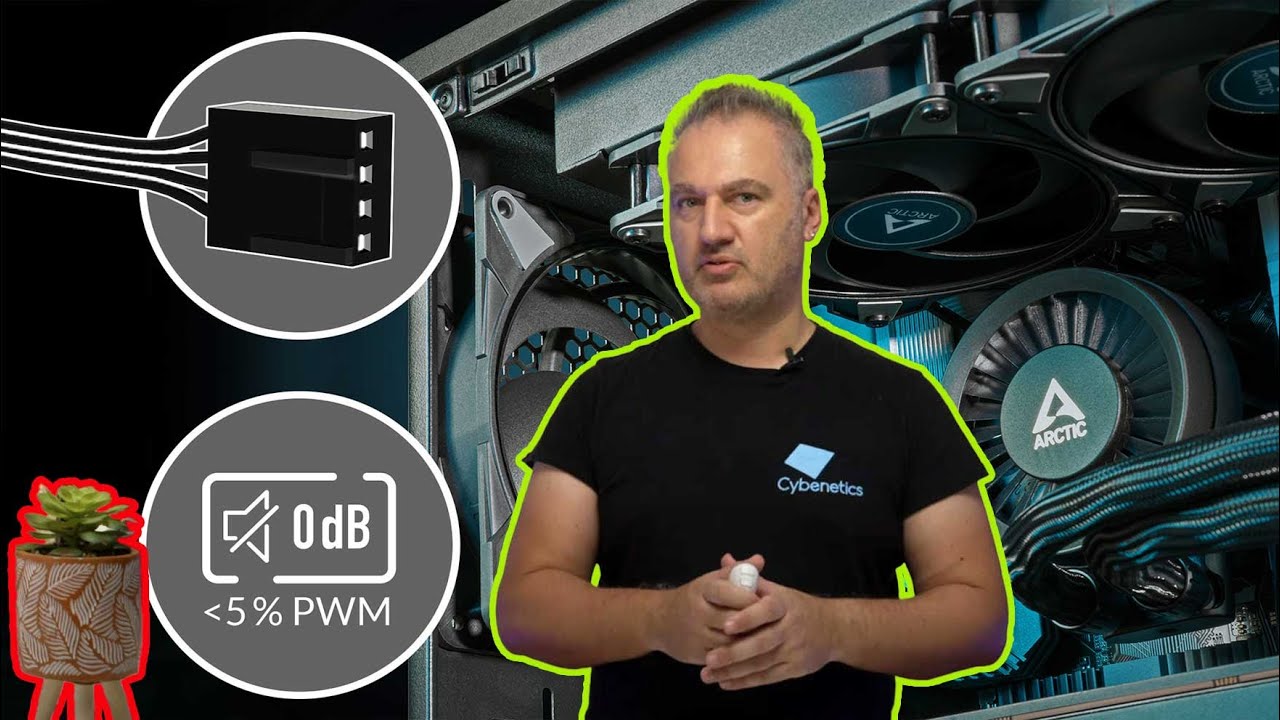Hi all,
It is me again! I have following set up now,
CPU Intel i5 13500
Motherboard Tomahawk B760
M.2 1TB drive (version 4?)
Zalman Z10 case
I need a power supply that can be used for now and support some 2nd hand GPUs I will likely acquire, perhaps sooner than later.
For GPU I have seen very reasonable prices GTX 1060-1080, GTX1660 ti too. I may go up in future to 2000 range but think it is more than needed. I will prob buy a GPU in about 1 year or so. A PSU that can handle the GPU is essential I think, as they have 10 year warranties.
Is there any drawback of a high Wattage PSU running at low load? With the i5 13500 onboard graphics for example?
What wattage and PSU should I be aiming at? Something quiet would be good as I have quiet case.
Ideas I have
A Corsair RM series, 650W to 850W, not sure what is needed. Do the X and E series differences mean much, I heard X were quiet? Are the older ones (2019) a lot different from 2021 upgrades?
I can get:
Corsair RM650x 2021 CP-9020198-JP 80PLUS GOLD for ¥12,864 $98
CorsairRM750e 2021 CP-9020248-JP 80PLUS GOLD for ¥13,909 $105
Corsair RM850-2019- 850W PC Power Supply Unit 80PLUS GOLD PS863 CP-9020196-JP ¥15,780 $120
Other than the recommended Corsairs I looked at tier list but was bit overwhelmed. Seasonic were recommended, here seems they are sold under Owltech, anyon heard of them? Their site sells both seasonic and their own versions made by seasonic. I will ask someone in a store I think. Owltech seasonic gets high reviews and is frequently sold out.
Seasonic, FOCUS-GM-650
¥13,978
Seasonic, FOCUS-GM-850 https://kakaku.com/item/K0001238316/ (cheaper than 750 version)
¥14,589
Owltec HPT650 80 PLUS PLATINUM Certified ATX Power Supply Unit, FSP Gaming Power Supply, Hydro PT Series
https://www.amazon.co.jp/Owltec-HPT650-PLATINUM-Certified-Supply/dp/B08GKFXY4X/ (5 star rating)
¥10,773
Owltec Seasonic FOCUS Series 650W
¥8,380
Owltec Seasonic FOCUS GX Series 850W FOCUS-GX-850
¥16,800
Finally Antec and some more unknown options. Antec NeoEco is popular here, never heard of them and could be they are sold under other names elsewhere. Get good reviews also.
Antec: NeoECO Gold NE750G M
¥12,900
ANTEC: 80PLUS GOLD Certified High Efficiency Heavy Duty Power Supply Unit NE750 GOLD
https://www.amazon.co.jp/-/en/80PLUS-GOLD-Certified-Efficiency-NE750/dp/B078JBVTBV
¥11,846
An interesting Silverstone one because it is 700W and reduced, the 750 and 850 are a lot more expensive. Also cheaper than many others.
Silverstone Essential Series 80PLUS Gold Certified 700W
¥10,500
Others. XPG I am not sure about, ApexGaming I heard can be loud at high load.
DP-GD-DQ750-M-V2L
 ¥11,190
¥11,190
XPG CORE REACTOR COREREACTOR650G-BKCJP
¥11,660
Apexgaming AG Series 80 PLUS GOLD Certified 750W
¥9,900
Apologies for the load of links. As always I am looking to not make a mistake but also not pay over the amount needed for my build and future plans. I suspect Corsair will be the recomendation, was wondering if there are some hidden gems out there though. I always start with a load of ideas then quickly edit down.
Any advice appreciated. I will order today or pick up in store tomorrow,
Thanks again!!
It is me again! I have following set up now,
CPU Intel i5 13500
Motherboard Tomahawk B760
M.2 1TB drive (version 4?)
Zalman Z10 case
I need a power supply that can be used for now and support some 2nd hand GPUs I will likely acquire, perhaps sooner than later.
For GPU I have seen very reasonable prices GTX 1060-1080, GTX1660 ti too. I may go up in future to 2000 range but think it is more than needed. I will prob buy a GPU in about 1 year or so. A PSU that can handle the GPU is essential I think, as they have 10 year warranties.
Is there any drawback of a high Wattage PSU running at low load? With the i5 13500 onboard graphics for example?
What wattage and PSU should I be aiming at? Something quiet would be good as I have quiet case.
Ideas I have
A Corsair RM series, 650W to 850W, not sure what is needed. Do the X and E series differences mean much, I heard X were quiet? Are the older ones (2019) a lot different from 2021 upgrades?
I can get:
Corsair RM650x 2021 CP-9020198-JP 80PLUS GOLD for ¥12,864 $98
CorsairRM750e 2021 CP-9020248-JP 80PLUS GOLD for ¥13,909 $105
Corsair RM850-2019- 850W PC Power Supply Unit 80PLUS GOLD PS863 CP-9020196-JP ¥15,780 $120
Other than the recommended Corsairs I looked at tier list but was bit overwhelmed. Seasonic were recommended, here seems they are sold under Owltech, anyon heard of them? Their site sells both seasonic and their own versions made by seasonic. I will ask someone in a store I think. Owltech seasonic gets high reviews and is frequently sold out.
Seasonic, FOCUS-GM-650
¥13,978
Seasonic, FOCUS-GM-850 https://kakaku.com/item/K0001238316/ (cheaper than 750 version)
¥14,589
Owltec HPT650 80 PLUS PLATINUM Certified ATX Power Supply Unit, FSP Gaming Power Supply, Hydro PT Series
https://www.amazon.co.jp/Owltec-HPT650-PLATINUM-Certified-Supply/dp/B08GKFXY4X/ (5 star rating)
¥10,773
Owltec Seasonic FOCUS Series 650W
¥8,380
Owltec Seasonic FOCUS GX Series 850W FOCUS-GX-850
¥16,800
Finally Antec and some more unknown options. Antec NeoEco is popular here, never heard of them and could be they are sold under other names elsewhere. Get good reviews also.
Antec: NeoECO Gold NE750G M
¥12,900
ANTEC: 80PLUS GOLD Certified High Efficiency Heavy Duty Power Supply Unit NE750 GOLD
https://www.amazon.co.jp/-/en/80PLUS-GOLD-Certified-Efficiency-NE750/dp/B078JBVTBV
¥11,846
An interesting Silverstone one because it is 700W and reduced, the 750 and 850 are a lot more expensive. Also cheaper than many others.
Silverstone Essential Series 80PLUS Gold Certified 700W
¥10,500
Others. XPG I am not sure about, ApexGaming I heard can be loud at high load.
DP-GD-DQ750-M-V2L

DEEPCOOL DP-GD-DQ750-M-V2L ‰¿Ši”äŠr
¡ÅˆÀ‰¿Ši(Åž)F‰¿Šiî•ñ‚Ì“o˜^‚ª‚ ‚è‚Ü‚¹‚ñ@¡‰¿Ši.com”„‚ê‹Øƒ‰ƒ“ƒLƒ“ƒOF-ˆÊ@¡–ž‘«“xƒŒƒrƒ…[F4.00(2l)@¡ƒNƒ`ƒRƒ~F0Œ i¦3ŒŽ26“úŽž“_j
kakaku.com
XPG CORE REACTOR COREREACTOR650G-BKCJP
¥11,660
Apexgaming AG Series 80 PLUS GOLD Certified 750W
¥9,900
Apologies for the load of links. As always I am looking to not make a mistake but also not pay over the amount needed for my build and future plans. I suspect Corsair will be the recomendation, was wondering if there are some hidden gems out there though. I always start with a load of ideas then quickly edit down.
Any advice appreciated. I will order today or pick up in store tomorrow,
Thanks again!!




